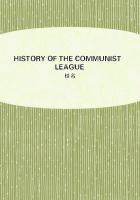On the other hand, Senator Benjamin Tillman, of South Carolina, who was an ardent admirer of Senator Hoar, was his opposite in every way. Tillman and I became very good friends, though at first he was exceedingly hostile. He hated everything which I represented. With all his roughness, and at the beginning his brutality, he had a singular streak of sentiment.
I addressed the first dinner of the Gridiron Club at its organization and have been their guest many times since. The Gridiron Club is an association of the newspaper correspondents at Washington, and their dinners several times a year are looked forward to with the utmost interest and enjoyed by everybody privileged to attend.
The Gridiron Club planned an excursion to Charleston, S. C., that city having extended to them an invitation. They invited me to go with them and also Senator Tillman. Tillman refused to be introduced to me because I was chairman of the board of directors of the New York Central Railroad, and he hated my associations and associates. We had a wonderful welcome from the most hospitable of cities, the most beautifully located City of Charleston. On the many excursions, luncheons, and gatherings, I was put forward to do the speaking, which amounted to several efforts a day during our three days' visit. The Gridiron stunt for Charleston was very audacious. There were many speakers, of course, including Senator Tillman, who hated Charleston and the Charlestonians, because he regarded them as aristocrats and told them so. There were many invited to speak who left their dinners untasted while they devoted themselves to looking over their manuscripts, and whose names were read in the list at the end of the dinner, but their speeches were never called for.
On our way home we stopped for luncheon at a place outside of Charleston. During the luncheon an earthquake shook the table and rattled the plates. I was called upon to make the farewell address for the Gridiron Club to the State of South Carolina.
Of course the earthquake and its possibilities gave an opportunity for pathos as well as humor, and Tillman was deeply affected.
When we were on the train he came to me and with great emotion grasped my hand and said: "Chauncey Depew, I was mistaken about you. You are a damn good fellow." And we were good friends until he died.
I asked Tillman to what he owed his phenomenal rise and strength in the conservative State of South Carolina. He answered: "We in our State were governed by a class during the colonial period and afterwards until the end of the Civil War. They owned large plantations, hundreds of thousands of negroes, were educated for public life, represented our State admirably, and did great service to the country. They were aristocrats and paid little attention to us poor farmers, who constituted the majority of the people. The only difference between us was that they had been colonels or generals in the Revolutionary War, or delegates to the Continental Congress or the Constitutional Convention, while we had been privates, corporals, or sergeants. They generally owned a thousand slaves, and we had from ten to thirty. I made up my mind that we should have a share of the honors, and they laughed at me. I organized the majority and put the old families out of business, and we became and are the rulers of the State."Among the most brilliant debaters of any legislative body were Senators Joseph W. Bailey, of Texas, and John C. Spooner, of Wisconsin. They would have adorned and given distinction to any legislative body in the world. Senator Albert J. Beveridge, of Indiana, and Senator Joseph B. Foraker, of Ohio, were speakers of a very high type. The Senate still has the statesmanship, eloquence, scholarship, vision, and culture of Senator Lodge, of Massachusetts.
One of the wonders of the Senate was Senator W. M. Crane, of Massachusetts. He never made a speech. I do not remember that he ever made a motion. Yet he was the most influential member of that body. His wisdom, tact, sound judgment, encyclopaedic knowledge of public affairs and of public men made him an authority.
Senator Hanna, who was a business man pure and ******, and wholly unfamiliar with legislative ways, developed into a speaker of remarkable force and influence. At the same time, on the social side, with his frequent entertainments, he did more for the measures in which he was interested. They were mainly, of course, of a financial and economic character.
One of the characters of the Senate, and one of the upheavals of the Populist movement was Senator Jeff. Davis, of Arkansas.
Davis was loudly, vociferously, and clamorously a friend of the people. Precisely what he did to benefit the people was never very clear, but if we must take his word for it, he was the only friend the people had. Among his efforts to help the people was to denounce big business of all kinds and anything which gave large employment or had great capital. I think that in his own mind the ideal state would have been made of small landowners and an occasional lawyer. He himself was a lawyer.














